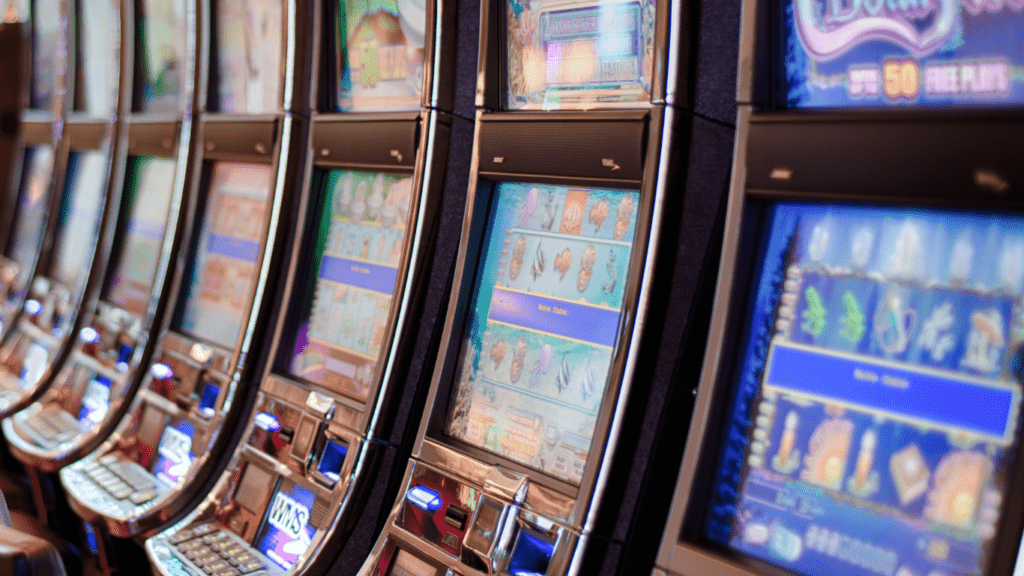Understanding Slot Machine Mechanics
Slot machines operate based on randomness and probability. Every spin generates a new outcome due to the Random Number Generator (RNG), a complex algorithm ensuring unpredictability. RNG produces thousands of numbers per second, each correlating to a specific result on the machine’s reels. This consistency in randomness makes pattern identification challenging.
Payout percentages, or Return to Player (RTP) rates, play a crucial role in slot machine design. Expressed as a percentage, RTP indicates the expected return to players over time. For instance, with an RTP of 95%, players might receive $95 back for every $100 spent, albeit not guaranteed in the short term. These percentages are set by the game developers and verified by independent regulators, providing a level of transparency.
Paylines enhance the understanding of slot machine payouts. These lines determine winning combinations and can range from a single line to hundreds. More paylines often lead to increased chances of hitting winning combinations but can also raise the bet requirement for each spin. Players must grasp the payline structure to make informed bets.
Symbols and their respective values also impact slot outcomes. Each machine features unique symbols, which vary in value and affect the payout structure. Special symbols like Wilds and Scatters can unlock bonus rounds or features, adding another layer of excitement and potential winnings.
Understanding these elements helps players navigate the intricate mechanics of slot machines. While the possibility of a consistent winning strategy remains elusive, grasping these mechanics offers a clearer perspective on engaging with these popular casino games.
The Science Behind Payout Patterns
Slot machines rely on science and complex algorithms to generate payout patterns. Understanding these factors can provide insight but not always a guaranteed winning formula.
Random Number Generators Explained
Random Number Generators (RNGs) are the core of slot machines. These algorithms create random sequences every millisecond to ensure every spin’s outcome is independent of previous ones. RNGs maintain fairness by making patterns impossible to predict, which aligns with gaming regulations. Whether a player wins or loses depends solely on chance due to these RNG sequences.
House Edge and Return to Player (RTP)
- The house edge is inherent in slot machines and ensures casinos maintain profitability over time.
- It’s the statistical advantage the casino holds, calculated as the difference between total bets and payouts.
- The Return to Player (RTP) percentage complements this, reflecting the average amount a machine returns to players.
- A slot with a 95% RTP gives back $95 for every $100 wagered over time.
- While RTP provides players an idea of machine generosity, the house edge guarantees a long-term profit margin for the casino, reinforcing the role of probability in winning strategies.
Common Myths About Slot Machines

Many misconceptions surround slot machines, leading players to follow strategies that don’t impact their chances. I’ll debunk some common myths.
Myth of Hot and Cold Streaks
There’s a belief that slot machines go through “hot” and “cold” streaks, affecting payouts. In reality, each spin’s outcome is determined by a Random Number Generator (RNG), ensuring randomness. No amount of observation can predict when a machine is due for a win. The concept of streaks is misleading, as each play is independent of previous outcomes. This myth likely arises from human tendencies to notice patterns even where none exist.
The Role of Betting Systems
Betting systems like the Martingale are often thought to improve slot success rates. Using these systems, players increase their bets following losses, aiming to recover with a win. However, since each spin is independent due to the RNG, no betting system can alter winning odds. Such strategies may create the illusion of control, but they can’t change the machine’s inherent randomness or house edge. Understanding this protects players from misplaced confidence in ineffective methods.
Strategies for Playing Slot Machines
Exploring effective tactics can enhance the slot machine experience, even if a guaranteed win isn’t possible. Smart approaches focus on bankroll use and machine selection.
Bankroll Management
- Effective bankroll management makes slot play enjoyable and prevents excessive losses.
- Aways set a spending limit based on my budget and avoid chasing losses.
- It’s wise to divide the total bankroll into smaller session amounts, ensuring consistent play without overextending oneself.
- Using smaller denominations for bets maximizes playtime, and sticking to predetermined win and loss limits promotes discipline.
- Maintaining control helps sustain a rewarding gaming experience.
Selecting the Right Machine
Choosing the right machine can make a difference in outcomes. I look for machines with high Return to Player (RTP) rates, as they indicate a higher payout potential over time. Opting for simpler machines with fewer reels and paylines often leads to more frequent, smaller payouts. When selecting, considering volatility is key; low volatility offers steady wins, while high volatility presents bigger, albeit less frequent, payouts. Researching these aspects improves strategic machine choice and elevates the overall gaming session.
Case Studies and Data Analysis
Slot machine payout patterns have intrigued players and researchers alike. Analyzing historical trends and real-world examples offers valuable insight into these captivating games.
Historical Payout Trends
Analyzing historical payout data reveals patterns that can inform player decisions. Payout percentages, tracked over time, show fluctuations due to changes in machine design or regulations. Historically, machines in high-traffic casino areas might offer higher payouts to attract players, although this isn’t a guarantee of sustained success. Understanding these trends provides context but doesn’t predict future outcomes due to the inherent randomness governed by RNGs.
Real-World Examples and Outcomes
Case studies of slot machine performance across different casinos offer practical insights. For instance, data from large casinos like those in Las Vegas might show a variety of machines with RTPs averaging from 85% to 98%. High-profile jackpot wins demonstrate volatility, where rare but significant payouts occur regardless of prior wins or losses. Analyzing outcomes over numerous gaming sessions helps illustrate how players experience variance, emphasizing that although patterns exist, they don’t equate to reliable strategies for consistent wins.



 Henry Stevenson
Content Strategist
Henry Stevenson is the Content Strategist at Jackpot Lucky Deal, bringing a rich background in gaming journalism and an eye for detail to every article and update. Henry’s primary focus is on delivering engaging, insightful content that helps readers understand the nuances of jackpot games, from slot machine strategies to tips on maximizing wins with responsible betting. Known for his ability to simplify complex topics and make them accessible, Henry has a knack for curating content that resonates with jackpot enthusiasts and newcomers alike. His role involves not only keeping readers informed about the latest news and trends but also crafting guides that support smarter, more informed gameplay. Through his work at Jackpot Lucky Deal, Henry aims to help players optimize their chances of winning while staying educated on safe betting practices.
Henry Stevenson
Content Strategist
Henry Stevenson is the Content Strategist at Jackpot Lucky Deal, bringing a rich background in gaming journalism and an eye for detail to every article and update. Henry’s primary focus is on delivering engaging, insightful content that helps readers understand the nuances of jackpot games, from slot machine strategies to tips on maximizing wins with responsible betting. Known for his ability to simplify complex topics and make them accessible, Henry has a knack for curating content that resonates with jackpot enthusiasts and newcomers alike. His role involves not only keeping readers informed about the latest news and trends but also crafting guides that support smarter, more informed gameplay. Through his work at Jackpot Lucky Deal, Henry aims to help players optimize their chances of winning while staying educated on safe betting practices.

